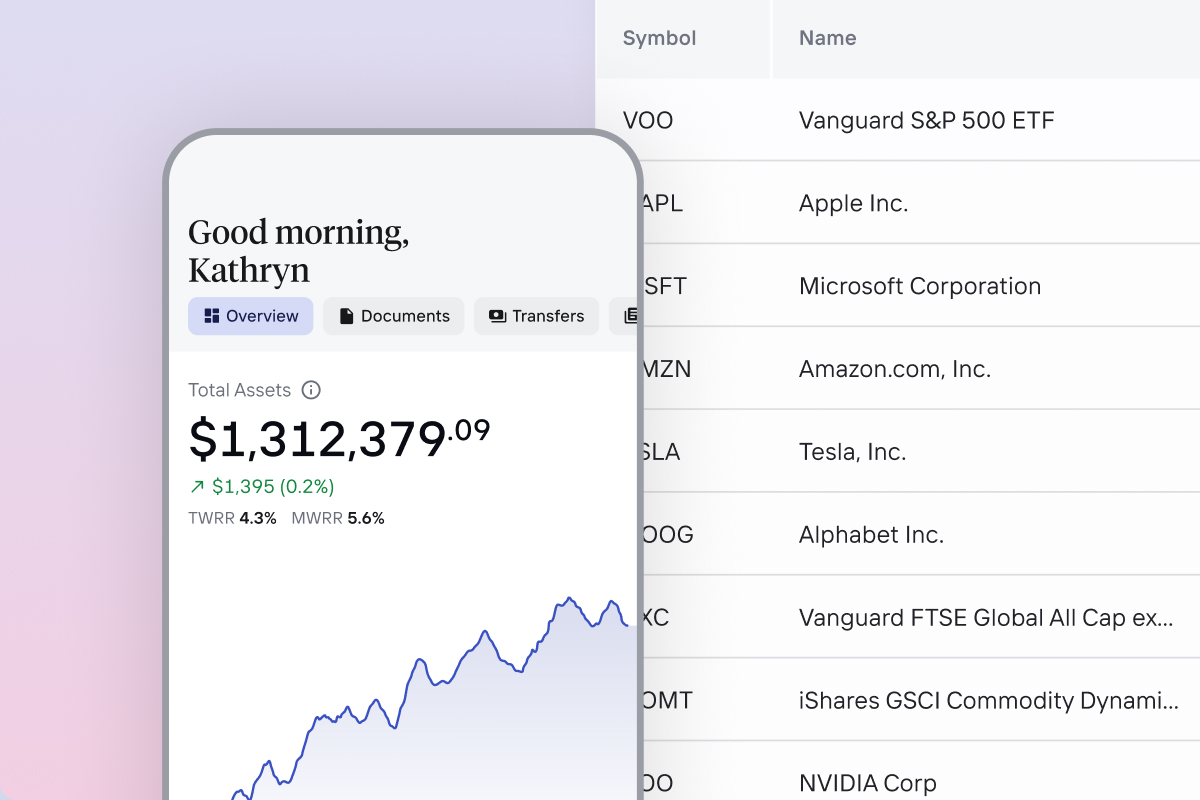As technology continues to develop to help firms and advisors move from manual to digital, technology orchestration has become a crucial part of the process. Tech orchestration is all about seamless integration of technology, while solving scalability issues and streamlining processes. Let’s look at what exactly tech orchestration does, and the advantages of adopting it.
What is Technology Orchestration?
In order to manage their offerings, wealth management firms often rely on a diverse group of systems and technologies, each serving a specific function. These systems accumulate as new solutions are adopted to address evolving needs and stay ahead of the market. With increased complexities, over time it becomes harder for these systems to communicate with each other, and this often ends up causing inefficiencies. However, this can be addressed with tech orchestration.
Orchestration, often done through a third-party platform, involves seamlessly integrating data, technology, and software systems to create a centralized advisory experience. By taking existing products that have already been developed and turning them into a single experience, firms and advisors can optimize workflows and continuously expand their framework for any future implementations.
Some examples of solutions enabled by or involved in tech orchestration are onboarding, portfolio management, reporting, and data aggregation.
While some legacy systems attempt to piece together fragmented technologies, partnering with fintechs to leverage orchestration can significantly improve the development of solutions instead. This benefits the company’s internal operations, and can enhance the client experience as well.
It’s one thing to make the move to more digital processes, but to create a synchronized ecosystem that houses technologies in one place is a greater step forward in enabling efficiency and better decision-making. Here are some other benefits:
Benefits of Tech Orchestration for Wealth Management
1. Modernize existing systems
Instead of having to invest in a full platform from scratch, firms can use orchestration to bring together systems they already have, with newer and more innovative integrations that will cut costs, save resources, and reduce implementation times.
2. Enhanced operational efficiency
With orchestration, each operational system can share data, and therefore work cohesively with each other under one roof. This way, issues can be solved quicker, and more tasks can be taken on without worries of miscommunication or delays between multiple systems.
3. Increased scalability
If a firm wants to expand its digital offerings without replacing its existing systems, an orchestration platform can help build the infrastructure needed to scale up product and service offerings with ease.
4. Improved client experience
Orchestration has advantages not only for firms and advisors but also for clients. Streamlining processes by improving tech coordination means more time can be spent building client relationships and creating more personalized services that keep them satisfied.
Choosing the Right Partners for Successful Technology Orchestration
Alongside having the right platform, having the right strategic partnerships also makes a big difference in successful orchestration. When challenges such as dealing with disconnected technologies or security concerns arise, it will be important to have a partner who can help navigate any integration difficulties and make sure all integrations are compatible to avoid future potential issues.
Additionally, the right partner should be able to offer consistent technical support and maintenance with proper cloud infrastructure to ensure reliable performance and security.
Offering flexible and scalable solutions that can adapt to a firm’s evolving requirements is also a key factor. They should provide robust support for not only integrating existing technologies but also incorporating new tools as needed.
Beyond this, a good orchestration partner brings more to the table than just technical solutions. What sets apart successful partners in tech orchestration is a commitment to understanding the unique needs of each firm they work with, while also making sure that any assistance they provide with integrating systems is proactive and personalized.
As the financial landscape evolves, strategically implementing orchestration is a way for firms to upscale their offerings but maintain control over the connections of each system they may have. Harnessing its benefits will enhance efficiency, improve client relationships, and stay ahead in an increasingly digital landscape, creating greater opportunities for technological evolution in the future.






